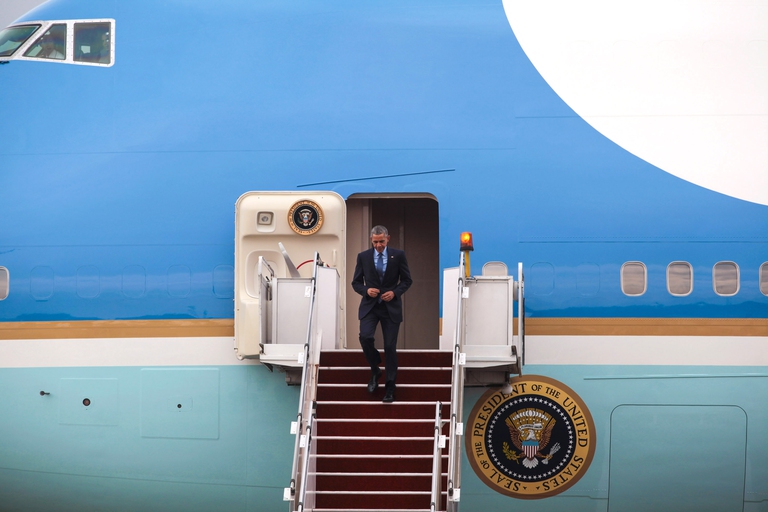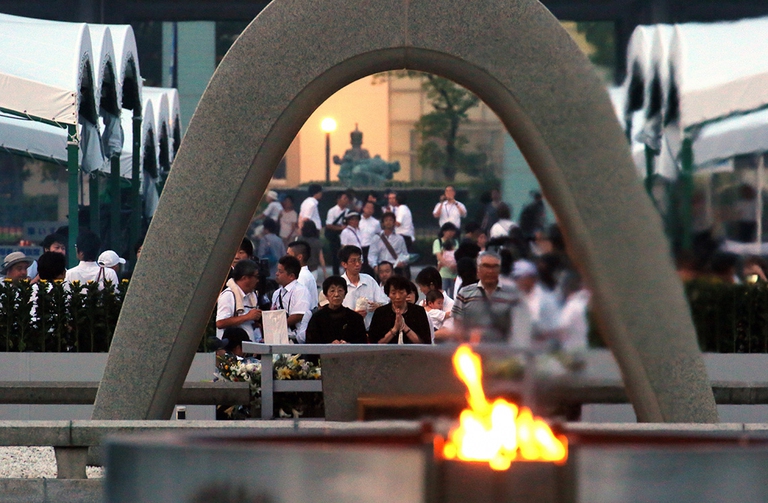
From Nepal to Morocco, from Madagascar to Peru, many antigovernamental protests that took place these weeks were led by Gen Z protesters.
Sunao Tsuboi, 91, is a Japanese man who survived the atomic bombing of Hiroshima on the 6th of August 1945. For this reason, it’s quite impressive to hear Tsuboi’s optimistic words – reported by Japanese news website NHK – on US President Barack Obama’s visit to the Japanese city. This is part of his Asian tour
Sunao Tsuboi, 91, is a Japanese man who survived the atomic bombing of Hiroshima on the 6th of August 1945. For this reason, it’s quite impressive to hear Tsuboi’s optimistic words – reported by Japanese news website NHK – on US President Barack Obama’s visit to the Japanese city. This is part of his Asian tour taking place from the 21st to 28th of May. After the traumatic accident, Tsuboi became an anti-nuclear activist and said that “Obama should visit Hiroshima” to send an important message to the world against nuclear weapons.
Obama announced he’s going to visit Hiroshima with Japanese Prime Minister Shinzo Abe on the 27th of May, becoming the first sitting American President in history to do so. His visit, however, doesn’t represent an apology for the 1,945 people killed instantly by the bombing and the 140,000 people who died throughout the following year. Not to mention the victims of the second nuclear bombing in Nagasaki on the 9th of August, which led Japan to surrender six days later. Similarly, Prime Minister Abe won’t push for an apology either. “Japan is the only country to be hit by a nuclear weapon, and we have a responsibility to make sure that terrible experience is never repeated anywhere,” Abe said.
The decision made by then President Harry Truman won’t be called into question. Obama “will not revisit the decision to use the atomic bomb at the end of World War II,” Benjamin J. Rhodes, Obama’s deputy national security adviser for strategic communication, said in a post on Medium. “Instead, he will offer a forward-looking vision focused on our shared future.”
Obama and Abe will visit the Hiroshima memorial – erected where the bomb had been dropped – and try to revive the process of disarmament and nuclear non-proliferation. The United States and Russia ratified the New START (Strategic Arms Reduction Treaty, which replaced all previous treaties on the matter) in 2010, aimed at reducing the two former superpowers’ nuclear weapons by 30 percent, i.e. to 1,550 units.
There are many Americans, mostly elderly people, who still think that the two bombs dropped on Hiroshima and Nagasaki were necessary to save both American and Japanese lives, given that a new American invasion of Japan would have been even more lethal. Instead, academics like Noam Chomsky – whilst bearing in mind Japan’s faults as well – have called that choice a war crime.
Siamo anche su WhatsApp. Segui il canale ufficiale LifeGate per restare aggiornata, aggiornato sulle ultime notizie e sulle nostre attività.
![]()
Quest'opera è distribuita con Licenza Creative Commons Attribuzione - Non commerciale - Non opere derivate 4.0 Internazionale.
From Nepal to Morocco, from Madagascar to Peru, many antigovernamental protests that took place these weeks were led by Gen Z protesters.
Joe Biden breaks ahead. Sanders falls but stays in the race. Bloomberg is hanging by a thread. Warren is invisible. The final results of Super Tuesday, a key day in the Democratic primaries to choose the candidate for the the US presidential elections.
“Local leaders have to ensure that changes happen. Every action a city takes for climate has an impact on the whole world”. We interviewed Ekrem İmamoğlu, Mayor of Istanbul, about mayors’ key role in tackling the global climate crisis.
Il giudice Steven Reed è diventato sindaco della città del profondo Sud, culla del movimento per i diritti civili.
A successful day for Greens and nationalists, while traditional parties suffer. The outcome? A European Parliament divided into homogeneous “slices”. The final results of the European elections 2019.
From 23 to 26 May voting will take place in the European Elections 2019. Who can vote, who the candidates are and how to vote to elect the 751 representatives at the European Parliament in Strasbourg.
After a series of diplomatic assignments, including with the United Nations, Sahle-Work Zewde has become the first female president of Ethiopia.
The House goes to the Democrats, the Senate remains Republican. But the midterm election results are positive especially for women. How the vote for Congress and 36 governors went.
In the midterm elections of the 6th of November, in 36 out of 50 United States a new governor was chosen on top the members of Congress. Here are all the results of the gubernatorial races.










